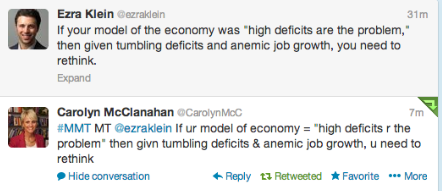By Stephanie Kelton
President Obama, who met with Greek Prime Minister Antonis Samaras at the White House yesterday, is reported to have said that while Athens can’t rely exclusively on austerity for its economic recovery, it will need to take tough action:
It is important that we have a plan for fiscal consolidation, to manage the debt, but it is also important that growth and jobs are a focus,” said President Obama.
I think Prime Minister Samaras is committed to taking the tough actions that are required, but also, understandably, wants to make sure the Greek people see a light at the end of the tunnel.
The Greek people have already seen household incomes fall by a third as a consequence of three years of “tough action.” Unemployment stands at nearly 28 percent, and youth unemployment is a staggering 64.9 percent. A quarter of the population has trouble putting food on the table, public health is deteriorating, suicide is up 26 percent, etc. Worst of all, there’s no end in sight.
The Greeks have served as Guinea Pigs in the most vile neoliberal macroeconomic experiment in modern history. From where I’m sitting, that light at the end of the tunnel looks like just another oncoming freight train.
Follow Stephanie on twitter @deficitowl













